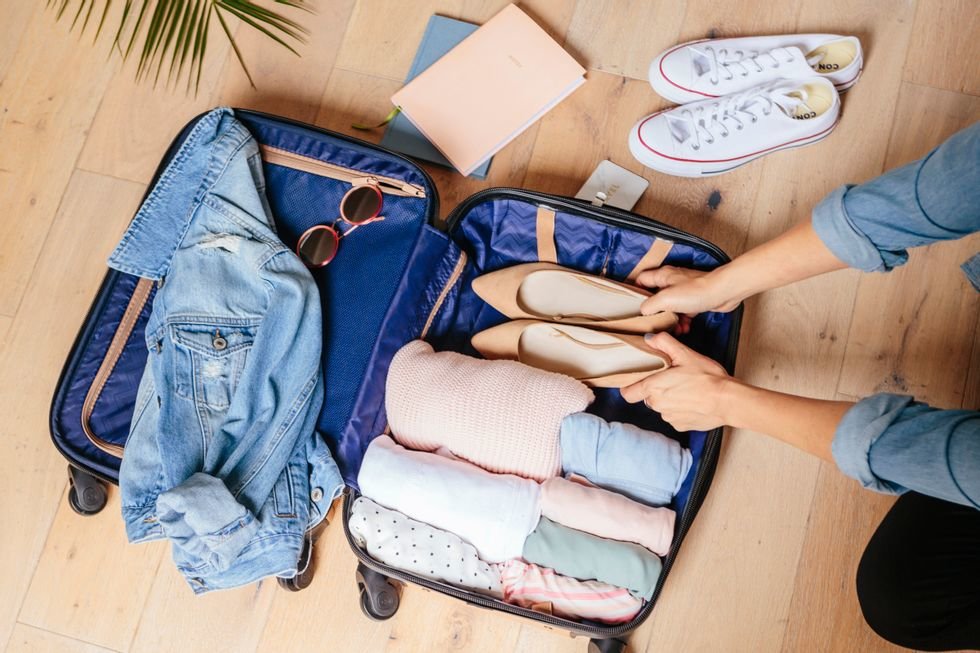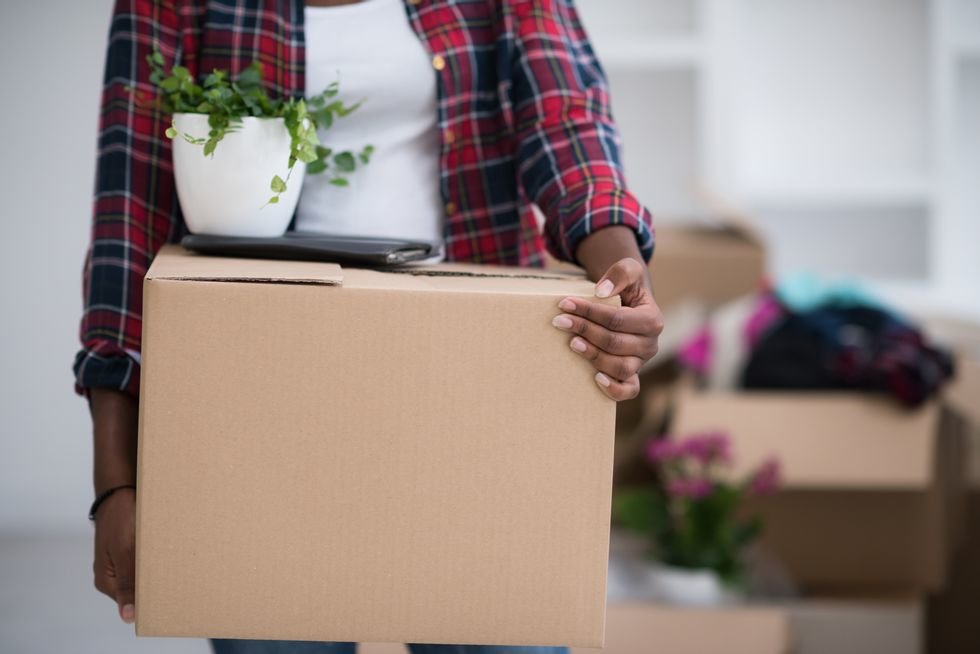Plus, it's kind of nice to take an inventory of all your stuff and purge all the stuff that brings you little joy. Get ready to Kondo your belongings and prepare for a smooth move with this before/during/after checklist. Happy Moving!
8 Weeks Ahead

Create a Moving Budget: Before you commit to hauling your stuff yourself (with the help of a few very generous friends), consider your budget. Call around to reputable moving companies to get a sense of how much it would cost to move you. Try to get three estimates and make sure to ask the moving company if the estimate is a binding estimate (meaning the price that is quoted is the one you'll pay) or a non-binding estimate (more of a projected cost to help you anticipate the cost). You should make sure that the movers perform either a video survey or an in-person inspection of the possessions before providing an estimate.
Decide If You'll Move Yourself: You might prefer to invest in new furniture for the new place rather than splurge on movers but also do you really want to move yourself? Moving also has these hidden costs like buying new furniture and accessories that suit your new place, installation fees for stuff like new WiFi, buying moving insurance, tipping movers, packing supplies, etc. So figure out what you'll actually spend in both scenarios before you decide to hire or DIY.
6 Weeks Ahead

Schedule the Move: Finally, it's time to schedule the movers (or the moving truck). The peak moving season, between May and September, will probably cost more than if the move was made between November and January. Moves made in the weekdays will also cost less than a move on the weekend
Order Packing Supplies: From packing paper to tape to bubble wrap and boxes, these materials will help you make sure that all of your stuff arrives safely in your new home. Check Nextdoor or reach out to friends who might have boxes to unload so you don't have to buy new. Try to pack all non-essentials first, such as electronics, home décor items, and books. Essential items like toiletries, clothing, dinnerware, and kitchen items should go last or at least leave a few behind for those final nights.
Pack, Sell, or Donate?: We love a good purge and this is a perfect time to shed old books, home decor items you no longer want and ill-fitting clothes, etc. The weather is perfect right now in most parts of the country to host a garage or yard sale. Bonus: you'll make some extra cash and you don't have to move as many things! For the things that don't sell, check the operating hours of your local Goodwill, Habitat for Humanity, or the local Salvation Army (especially as they may change during the pandemic). You can also reach out to friends and family IRL or on social who might need an extra bed or clothes.
Four Weeks Ahead

Make a Plan for Pets and Kids. Moving is stressful but moving with kids and pets, even more so. Now is a good time to make a plan for them not to be around on moving day. Arrange a day out with the grandparents or "aunties" or a sleepover so you can get everything sorted after moving in and not have to worry about accidents in the new place.
Notify a Change of Address: Now is also a good time to let the post office as well as your credit card companies know that you're moving (you don't want your Auto-Pays interrupted!). Request your post office's Mover/s Guide packet (and score some moving deals) and you should receive a confirmation letter up to 5 business days in your new mailbox.
Find Local Providers. Make sure to transfer utility services so that you're all set up in your new place with WiFi and electricity and schedule to have them turned off in your old place the day after moving out. You also want to make sure your doctors, caregivers, insurance services, schools are all set up. Don't have a social circle yet in your new area who can provide suggestions? Check out online reviews or ask around to friends who might have contacts in the area.
Two Weeks Ahead

Get Familiar With the New Parking Situation: Another thing you don't need on your move in the day are fines and towing. Make sure you have any required permits for your neighborhood to park a rental truck as well as your own car if you live on a permitted street (which is common in cities).
Get to Know Your New Neighborhood: Try to make one last trip to your location before the big day to make sure that everything is in check with your new house or apartment. Try to introduce yourself to your new neighbors (a good ice breaker is asking them for the best restaurants and takeout places in town), and get familiar with the nearby clinics, supermarkets, drug stores, parks, libraries, utility shops, and so on.
Move In Day

Get Ready for the Movers: Whether they're friends or pros, have plenty of water and snacks around as they help you stow boxes away and move furniture into the truck. You never realize how much stuff you have until you move! This could take a couple trips so make a plan for lunch too. Make sure you have picked up the new keys too!
Clean Up: Once the moving truck has driven off go through the inventory in your house and make sure you give the floors one last sweep and that you check all the closets and cabinets for any forgotten items. Don't forget to take out all of the trash, close and lock all doors and windows, turn off the lights and other utilities, and ultimately let your landlord/realtor know you're officially moved out.
Take Inventory: Once you (or your movers) have moved everything in, note any damaged items and inform your insurance and moving companies immediately. Then take an inventory of what you might need in your new place: food and water, new drapes, kitchen supplies, a fresh new coat of paint, updated carbon monoxide detectors, etc.
Settle In: Congratulations! You've made it into your new home. Now sit back, enjoy a drink of your preference (you deserve it!), and get to know your new home. It's been a long 8-week process of moving out and in, and you're finally there! Enjoy!



![A Tranquil Jungle House That Incorporates Japanese Ethos [Video]](https://asean2.ainewslabs.com/images/22/08/b-2ennetkmmnn_t.jpg)









